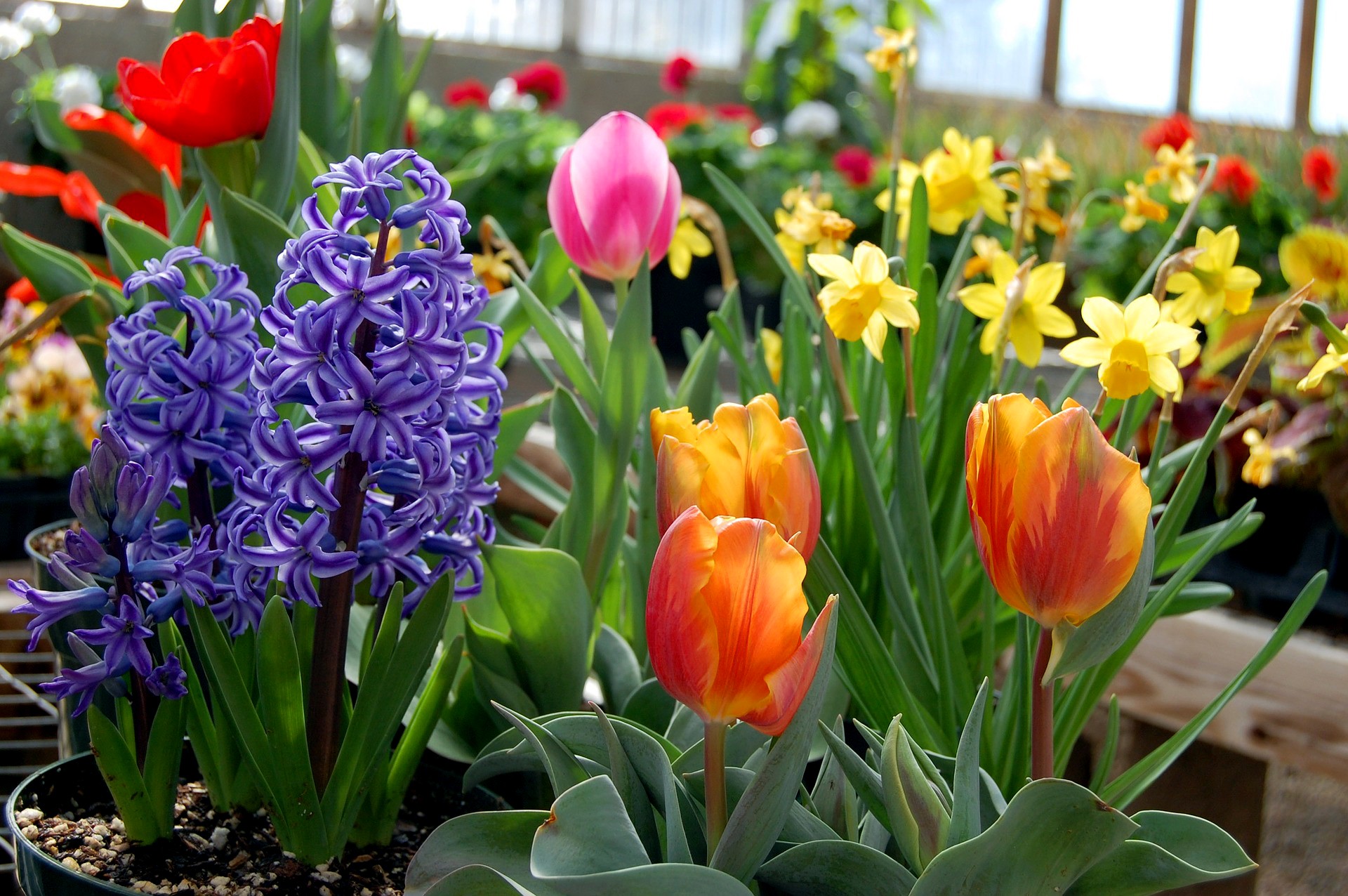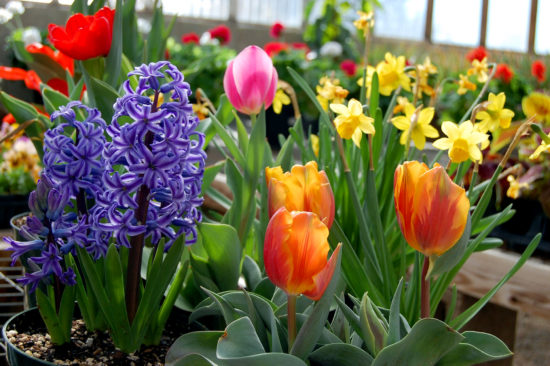Updated:February28,2024 Here at NHG, we know you love pretty blooms that are easy to plant,…
Top 10 Questions About Planting Bulbs


When the weather gets cooler, it’s time to plant bulbs that will bloom in your spring garden.
Today NHG answers the top 10 most common questions about planting bulbs in Texas.
1. When should I plant spring flowering bulbs?
Timing depends entirely on your zone and weather patterns. Some bulbs, like tulips, are very temperature-sensitive and shouldn’t be planted until soil temperatures are at or below 55 degrees. Tulips also require consistent cold storage between 35 and 45 degrees for several weeks before planting. Daffodils are less temperature sensitive and can be planted from mid-September into early January. Speak to one of our garden advisors to be sure about the best time to plant.
2. How far apart and how deep should I plant?
The bulb package should tell you how deep and wide to plant bulbs. If you’ve lost your package, follow the 3×3 rule. Plant bulbs three times as deep as their height and keep 3x the diameter of the bulb between plantings.
3. Which end is up?
Bulbs with pointy ends make it easy: plant the pointed end up. Corms and tubers should have roots attached. Plant those down.
4. When should I feed my bulbs?
Bulbs do store their own food, but a little extra nutrition will help them last years. Add a sprinkle of Bulb-tone to the hole of each newly planted bulb. Come spring, sprinkle a little more Bulb-tone on top of the soil to give them an extra boost.
5. Should I water the flower bulbs after I plant them?
Yes, watering well after planting is important. Thereafter, watering should only be necessary if the weather is particularly warm and dry—spring rainfall is usually enough to sustain their growth in most areas.
6. Should I mulch bulbs?
We are huge advocates of mulch as long as it’s applied correctly. In cool climates you can mulch after the soil freezes. In warm climates, zones 8 and above, mulch well after planting.
7. What should I do with the leaves after the flowers have faded?
Give leaves at least 8 weeks of growing, after the flowers fade. You can cut the stem, but the foliage provides energy for next year’s blooms. This is also a good time to feed bulbs, as they’re building up reserves.
One solution is to camouflage the fading foliage by planting cool season annuals, such as pansies and snapdragons.
8. Are there any bulbs deer don’t eat?
Daffodils are among the most pest free spring bulbs you can grow, and are not palatable to deer. Alliums, in the onion family, are also unappealing.
9. What about other pests?
There are measures you can take to keep unwanted visitors from eating your bulbs, such as covering newly planted bulbs with a layer of chicken wire on the surface of the soil, but under a layer of mulch. There are also organic products made with pungent essential oils that serve as repellents to squirrels and rabbits.
10. Will my flower bulbs come up again next year?
Tulips are not likely to return except in zones 5 or cooler. Daffodils can perennialize and even naturalize—multiply each year—in most zones, depending on weather patterns. Some hyacinth varieties can become perennial, whereas most crocus and muscari will be perennial and naturalize in zones 8 or cooler.
Have a question we didn’t answer? Contact us today or visit our Facebook page!
Save


